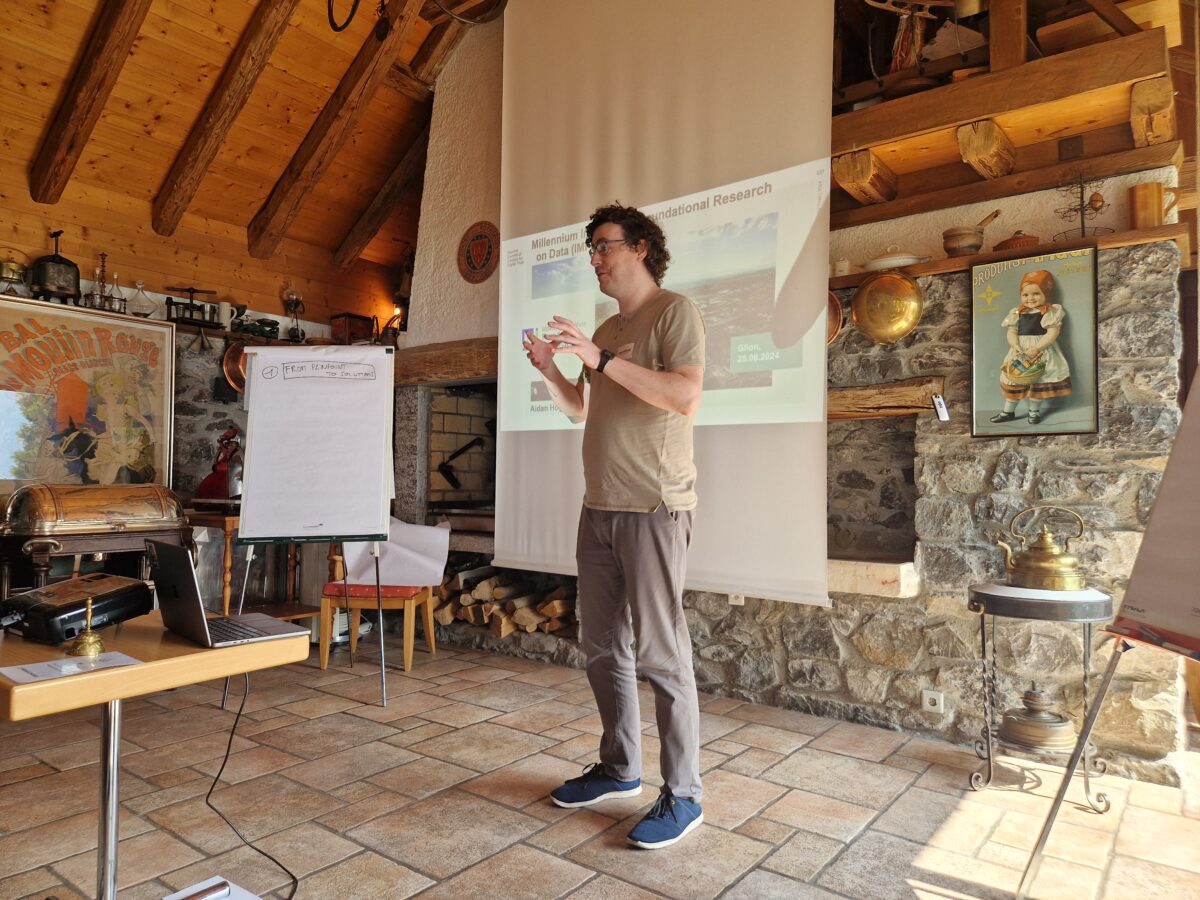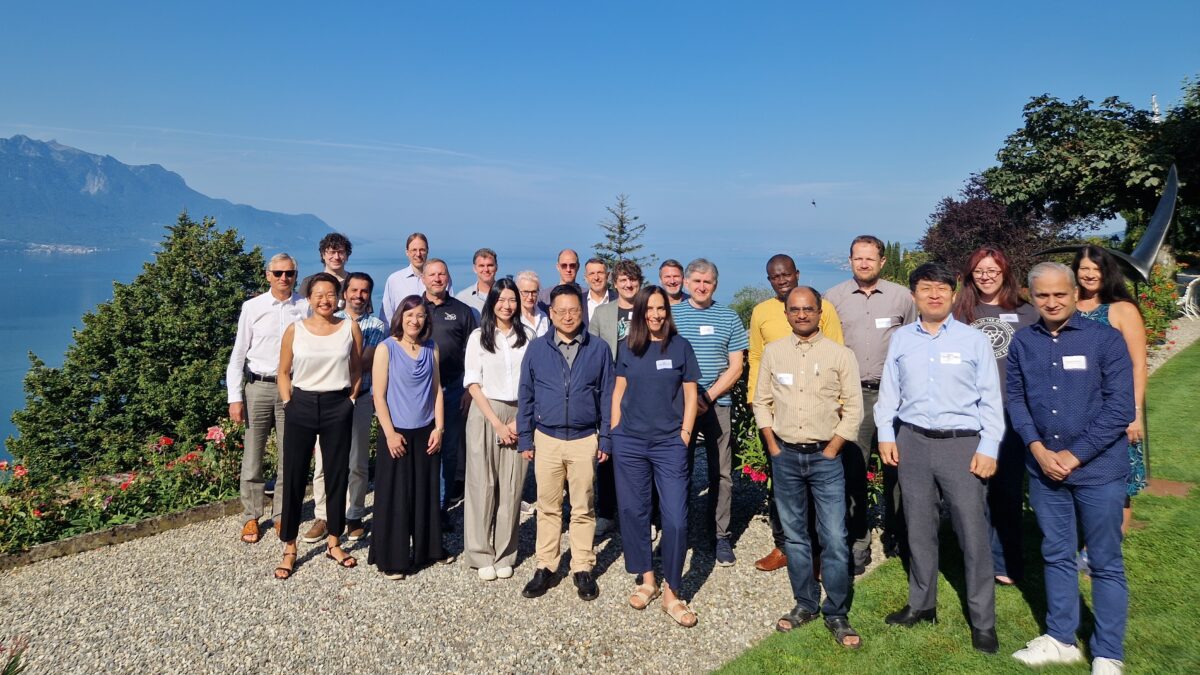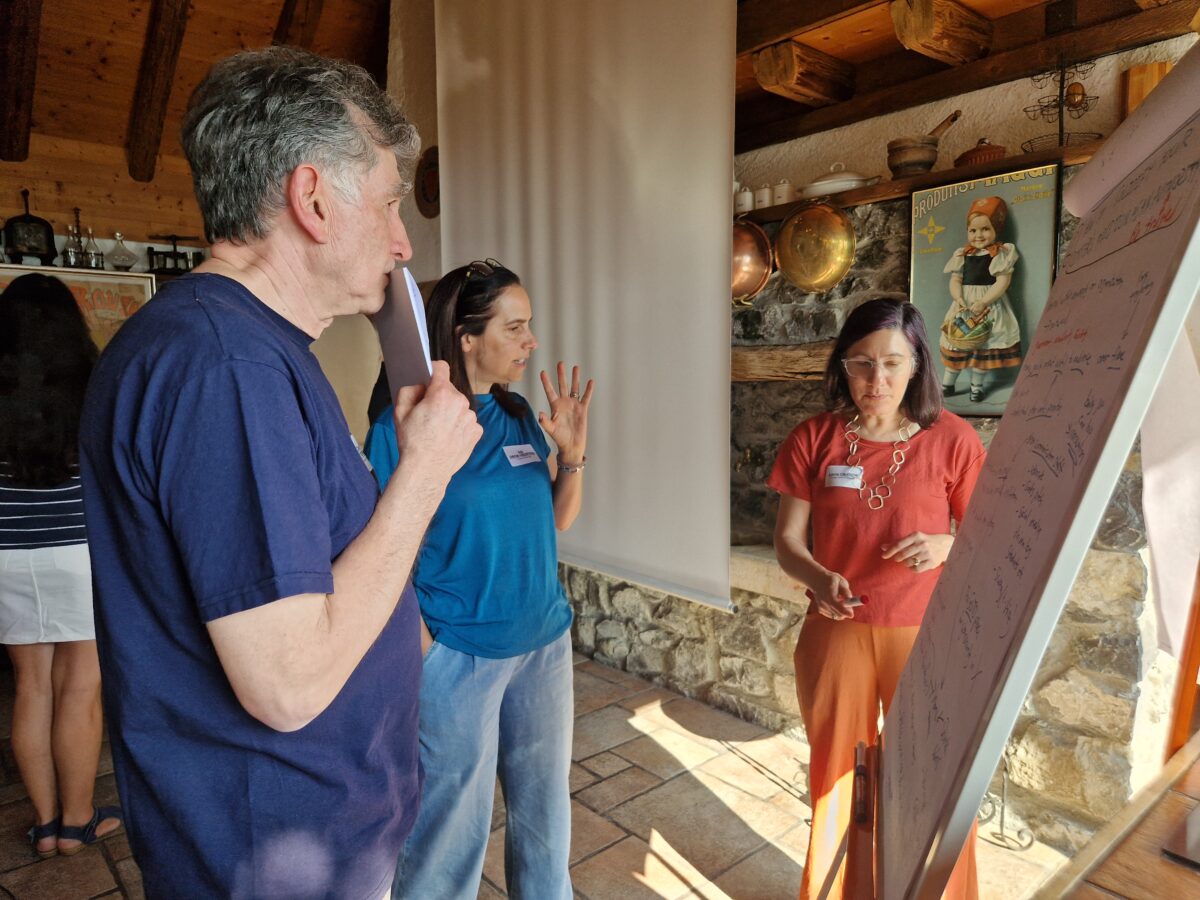IMFD participates in the "Glion Summit of Centers", a global meeting of digital trust for research centers.
September, 2024. Generating environments, protocols and tools that give reliability to interaction in digital environments: this is one of the biggest challenges currently facing the world of computing and informatics. Digital trust is the main focus of the "Glion Summit of Centersheld in Switzerland, which brought together leaders from 20 research centers around the world to compare their experiences in the area, align their missions and increase their impact, as well as establish international collaboration networks.
Aidan Hogan, director of the Department of Computer Science at the University of Chile (DCC U. Chile) and alternate director of the Millennium Institute Foundational Research on Data (IMFD), and Claudio Gutiérrez, DCC U. Chile academic and IMFD researcher, were invited to the meeting as the only representatives from Ibero-America.

"Digital trust issues are becoming increasingly relevant for those of us working in this area. As IMFD, we have worked on different projects that have allowed us to gain experience and question the challenges that arise when we see that behind all our models and data, there are People to whom our systems must respond and be useful," highlights Aidan Hogan.
This is the second meeting coordinated by EPFL's Center for Digital Trust (CD4T), in which in addition to the main focus, two objectives were added: to seek to address and understand the needs of the challenges faced by the centers, and to use the world of journalism as a concrete case study to serve as a basis for the centers' research programs.

"Addressing the idea of digital trust from academia and research allows us to establish guidelines for the creation of tools aligned with the objectives of our societies, avoiding leaving in the hands of private companies this important space that is increasingly inhabited," says Claudio Gutiérrez. "Among those of us who participate, there is a broad consensus on the need to foster these dialogues, create an international community in this regard and thus pave the way to have a significant collective impact," he emphasizes.

The Glion Summit hopes to fill a gap in the needs of research centers: While there are many conferences at which these issues can be addressed, this summit is the only place dedicated to internal and operational exchange. Those participating in the Glion network must meet a number of selection requirements: they must be based in a university or technical department, have external partners, and include in their mission the development of policy and outreach activities on crucial issues of digital trust. The meeting also seeks to reflect the excellence and flourishing activities taking place in various parts of the world.
At the first meeting (2023), 13 centers participated, and this year four new ones joined: Arizona State University's Center for Cybersecurity and Trusted Foundations. Arizona State University's Center for Cybersecurity and Trusted Foundations (USA). (USA)the CyLab-Africa of Carnegie Mellon University Africa (Rwanda), the ACTION Institute Institute of the University of California at Santa Barbara and the Millennium Institute Foundational Research on Datain Chile.

Participating centers
Carnegie Mellon University (USA) - CyLab Security and Privacy Institute
Carnegie Mellon University Africa (Rwanda) - CyLab-Africa
Harvard University (USA) - Berkman Klein Center for Internet & Society
Indian Institute of Technology Bombay (India) - Trust Lab
Korea Advanced Institute of Science & Technology (South Korea) - Cyber Security Research Center
KTH Royal Institute of Technology (Sweden) - Center for Cyber Defence and Information Security
Massachusetts Institute of Technology (USA) - Internet Policy Research Initiative
Nanyang Technological University (Singapore) -Digital Trust Centre
Oxford University (UK) - Responsible Technology Institute
Purdue University (USA) - Center for Education and Research in Information Assurance and Security
Queen's University (UK) - Belfast Center for Secure Information Technologies
Swiss Federal Institute of Technology Lausanne EPFL (Switzerland) - Center for Digital Trust
Technical University of Munich (Germany) - Munich School of Politics and Public Policy
Tel Aviv University (Israel) - Blavatnik Interdisciplinary Cyber Research Center
UC Berkeley (USA) - Center for Long-Term Cybersecurity
UC Santa Barbara (USA) - ACTION Institute
University of Chile - Catholic University of Chile (Chile) - Millennium Institute Foundational Research on Data
University College London (UK) - Cybersecurity Center
Uppsala University (Sweden) - Research Institutes of Sweden (RISE) Cybersecurity Unit
